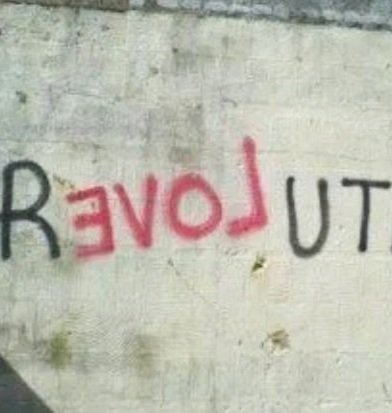 Image 1 of 2
Image 1 of 2

 Image 2 of 2
Image 2 of 2



Feminist and Anti-Racist Philosophies of Love [6-weeks, $250 Suggested]
Instructor: Dahiya | Tuesdays, January 18-February 22 | 6:30-8:30 PM ET
Our everyday conceptions of love are over-saturated with stereotypical and heteronormative Hollywood ideas rooted in capitalist consumption. Expressing love means buying a diamond or a box of chocolates. But what if those ideas aren’t just normal (or worse, boring), but instead can even be violent: encouraging capitalist exploitation that drives us farther apart and reinforcing the very norms that ostracize those that can’t fit within it. Is love too co-opted to be saved? Or is there a political possibility for love? In this course, we’ll consider other versions of love, grounded in powerful political action and alternative ideas of relationality.
We’ll begin to study the nature of love itself by reading psychology, anthropology, and theory to ask if love is an emotion, a drive, an anticipation of, or desire for a union. We’ll also explore the relation between love, emotion, and affect. We will then study how systems of oppression warp and destroy love through how they encode who is worthy of love and how we practice love, and how it is for precisely this reason why it is urgent that to reimagine a feminist, anti-colonial, and anti-racist conception and practice of love. How have imperialism, racism, sexism, and classism shaped what black feminist theorist bell hooks calls the “culture of domination” that we live in, one that is fundamentally anti-love? How does this culture of domination inform and shape our relation to ourselves and to each other? Following hooks, what does it mean to understand love as the practice of freedom? We’ll end the course by re-imagining how love as a practice can reframe and transform our relations with ourselves, each other, and political life more broadly.
Authors and groups may include bell hooks, Audre Lorde, Gilles Deleuze, Frantz Fanon, Jennifer Nash, Baruch Spinoza, Brian Massumi, Sarah Ahmed, Deborah B. Gould, and ACT UP.
—
We depend on a mix of direct student donations and supplemental donations to make all classes pay-what-you-can. Please pick the pricing tier that corresponds with your needs and that you are able to pay now. If you would like to pay in installments, make your first payment now and make a note on your check-out form. If you would like to donate more later in the term, you can always come back and use the “Make a One Time Donation” button! To use a full scholarship, just pick the $3 tier to cover site/processor fees.
If at any point up to 48 hours before your first class session you realize you will be unable to take the class, we will work with you to reallocate your funds to a future class, to another student’s scholarship, or refund it. After classes begin, we are only able to make partial refunds and adjustments.
Instructor: Dahiya | Tuesdays, January 18-February 22 | 6:30-8:30 PM ET
Our everyday conceptions of love are over-saturated with stereotypical and heteronormative Hollywood ideas rooted in capitalist consumption. Expressing love means buying a diamond or a box of chocolates. But what if those ideas aren’t just normal (or worse, boring), but instead can even be violent: encouraging capitalist exploitation that drives us farther apart and reinforcing the very norms that ostracize those that can’t fit within it. Is love too co-opted to be saved? Or is there a political possibility for love? In this course, we’ll consider other versions of love, grounded in powerful political action and alternative ideas of relationality.
We’ll begin to study the nature of love itself by reading psychology, anthropology, and theory to ask if love is an emotion, a drive, an anticipation of, or desire for a union. We’ll also explore the relation between love, emotion, and affect. We will then study how systems of oppression warp and destroy love through how they encode who is worthy of love and how we practice love, and how it is for precisely this reason why it is urgent that to reimagine a feminist, anti-colonial, and anti-racist conception and practice of love. How have imperialism, racism, sexism, and classism shaped what black feminist theorist bell hooks calls the “culture of domination” that we live in, one that is fundamentally anti-love? How does this culture of domination inform and shape our relation to ourselves and to each other? Following hooks, what does it mean to understand love as the practice of freedom? We’ll end the course by re-imagining how love as a practice can reframe and transform our relations with ourselves, each other, and political life more broadly.
Authors and groups may include bell hooks, Audre Lorde, Gilles Deleuze, Frantz Fanon, Jennifer Nash, Baruch Spinoza, Brian Massumi, Sarah Ahmed, Deborah B. Gould, and ACT UP.
—
We depend on a mix of direct student donations and supplemental donations to make all classes pay-what-you-can. Please pick the pricing tier that corresponds with your needs and that you are able to pay now. If you would like to pay in installments, make your first payment now and make a note on your check-out form. If you would like to donate more later in the term, you can always come back and use the “Make a One Time Donation” button! To use a full scholarship, just pick the $3 tier to cover site/processor fees.
If at any point up to 48 hours before your first class session you realize you will be unable to take the class, we will work with you to reallocate your funds to a future class, to another student’s scholarship, or refund it. After classes begin, we are only able to make partial refunds and adjustments.